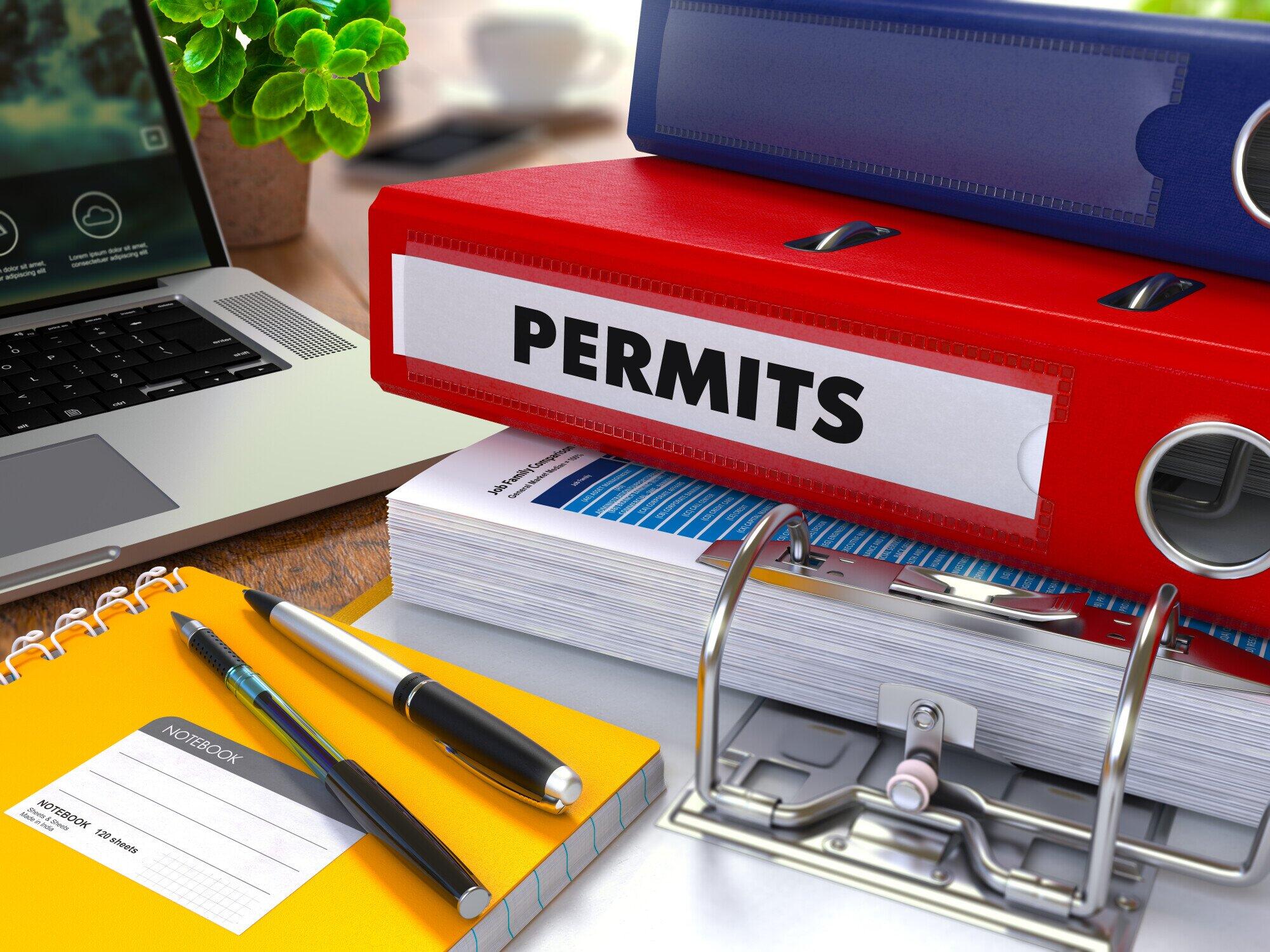Maybe you developed a love for DIY home improvement projects and tackled a lot of remodeling on your own. Now that you’re getting ready to sell your house, you’re wondering how much of that work should have involved a permit.
The Spruce provides a useful list of the types of projects that cities tend to require permits to complete. For example, that new wallpaper didn’t need a permit. That new deck or fireplace probably did.
If you’re selling a house with unpermitted work, what are your options? We’re here to discuss everything from potential legal issues to home-selling strategies. Read on for more.
Is Selling a House With Unpermitted Work Legal?
It is technically legal to sell a house with unpermitted work. In fact, unpermitted work can often go under the radar, particularly if it just so happens to meet city codes.
That said, there are still some legal considerations and complications to account for when listing your home for sale.
Do I Need to Disclose Unpermitted Work to Buyers?
While you don’t necessarily need to mention unpermitted work in your real estate listing, you do need to disclose that information to any potential buyers before closing on the sale. The earlier you disclose that information, the less likely you are to lose a buyer’s trust.
Is it worth pretending like you don’t know about the unpermitted work on your property? Not really. If that unpermitted work leads to damage and injuries after the sale, the buyer can sue you.
Will Home Inspectors Notice Unpermitted Work?
Some home sellers assume that the risk of getting sued for unpermitted work is low enough that they can refrain from disclosing the issue. However, any buyer who uses traditional financing to purchase a home will need to get a home appraisal. Will home inspectors notice and report unpermitted work?
The answer tends to depend on the scope of the unpermitted renovation. Home inspectors are trained to look for issues with:
- Major structural changes (e.g., new additions or conversions)
- Electrical work
- Plumbing modifications
- Roofing
- HVAC systems
- External structures (e.g., decks and fences)
If you’ve remodeled any of these areas, the inspector may ask to see the permits. They will likely inform the buyer’s lender of any unpermitted work that turns up during the inspection.
Are There Other Legal Issues with Properties with Unpermitted Work?
The purpose of home renovation permits is to prove that the changes you’ve made to your home are compliant with city codes. City codes exist to increase the health and safety of residential occupants.
Failure to comply can jeopardize the health and safety of anyone on the property. In some cases, unpermitted work yields significant fines or lawsuits.
Can I Obtain Retroactive Permits?
Maybe you didn’t get permits for your last home renovation because you didn’t know you needed them. Now, you want to set things straight before you sell your home. Here’s how to obtain retroactive permits in Memphis.
Gather Documentation of the Work
Start by gathering any documentation of the unpermitted work. This may include:
- Photos and videos of the project during and after completion
- Details of any materials used during construction
- An inspection from a licensed contractor
The latter is important because it will help you and the Construction Enforcement Department identify any areas that do not currently comply with building codes.
Apply for Permits Through the Construction Enforcement Department
In Memphis, the Construction Enforcement Department is responsible for providing residential permits. You will need to contact them to apply for the proper permits for your home’s remodels. You can do so by:
- Filling out online forms
- Visiting the Customer Service Counter at City Hall
- Visiting the East Office on Mullins Station Road
If you have any questions about compliance issues, an in-person visit may be useful. Keep in mind that it tends to take between one to three weeks for the department to review permit applications. If you plan to obtain retroactive permits, make sure you get started well before you plan to list your home for sale.
Make Required Changes
Even if you’ve received an inspection from a licensed contractor, the city will send a building inspector after your permit application goes through. The purpose is to determine how much work (if any) you’ll need to do to comply with building codes.
Once you know what required changes you need to make, hire licensed and insured contractors. While DIY work may seem like a good financial choice, it doesn’t guarantee that you’ll meet building codes. After you’ve made the required changes, you’ll need to receive final approval to secure your retroactive permit.
Can Unpermitted Work Impact My Home Sale?
Aside from specific legal issues, does unpermitted work have an impact on home sales on the traditional market? From fewer interested buyers to more seller concessions, that unpermitted work can take a toll.
Fewer Interested Buyers
Are you hoping to close the sale quickly? Depending on the type and scope of the unpermitted work, you may lose buyer interest. Buyers may decide to look elsewhere if the unpermitted work:
- Poses serious threats to health and safety
- Could result in significant fines from the city
- Puts the owner at risk of notable legal liabilities
On the traditional market, unpermitted work can become a significant roadblock, and you may find that your home sits on the market longer than expected. If you decide later to seek a retroactive permit, you can expect several more months of delays.
Buyer Financing Trouble
It’s also possible that by the time you secure a buyer who is willing to take on the risk, you still can’t close the sale. As we mentioned earlier, any buyer looking to secure a mortgage will need to complete a home appraisal. If the inspector discovers your unpermitted work, it’s almost always going to get back to the lender.
According to Rocket Mortgage, this can cause some lenders to pull their financing offer. They may also advise the buyer against moving forward due to potential complications when getting the home insured. Unless your buyer is able to find an alternative financing option, they may have to back out of the deal.
Request for Seller Concessions
Unpermitted work can also take a significant toll on your closing costs. If your home isn’t generating a lot of interest, buyers may push you to lower your asking price, especially when they find out why you can’t seem to sell the property.
Even if they don’t negotiate the price down, they may ask for significant seller concessions. Seller concessions are expenses that sellers “cover” so the buyer can fix existing problems. In effect, you’re accepting less money for the house because the buyer recognizes the urgency of fixing unpermitted work.
Will Anyone Buy My House As-Is With Unpermitted Work?
If you don’t want to spend time and money getting retroactive permits, you may want to consider an alternative to the typical buyer. Cash investors are always looking to buy properties in the area. Here are the top reasons why you should consider selling to investors when you’re dealing with significant unpermitted work.
Faster Sales
When you work with cash investors, you can complete the sale from start to finish in as little as one week. All you need to do is contact the firm and let them know key details about your property. You’ll receive an offer right away, often within less than 24 hours.
Plus, you won’t have to wait for the investor to secure financing. These firms are ready to fund housing purchases in full cash upfront.
No Home Improvements Needed
As you can see, one of the biggest questions to ask yourself before listing a house with unpermitted work is whether or not you want to remedy the problem. Even if you don’t, you may want to make additional changes to make your house more appealing to the typical buyer.
When you sell your home to a cash buyer, you don’t need to do a thing. They’ll buy your property as-is and take care of any outstanding issues on their own terms.
No Surprises
Cash buyers understand that all residential properties have their issues. Whether you’re trying to prevent a foreclosure or move away from unpermitted work, they understand the potential risks.
For you, that means you won’t have to face any surprises down the road. Your cash buyer won’t back out of the deal after discovering an unexpected problem. They also won’t hit you with a lawsuit once they’ve purchased the house.
Sell Your House As-Is in Memphis for Cash
Selling a house with unpermitted work isn’t always easy. While small changes may go unnoticed, your buyer will detect bigger renovations, and they may not like what they find. Rather than dealing with the trials and tribulations of the traditional market, consider working with We Buy Houses.
We Buy Houses is a Memphis real estate company that makes selling easy for buyers. We close the deal within as little as a week and find interested investors after the fact. Contact us if you’re ready for a simple sale and cash in hand.







